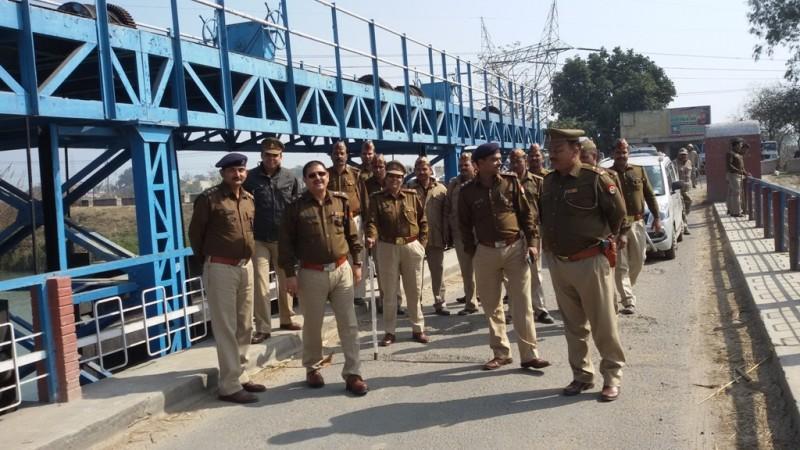
The report of the investigation into the February's Jat quota agitation in Haryana indicted 90 police personnel and administrative officials for failing to prevent the protests from getting violent, according to the Indian Express. The report was prepared by a committee led by retired IPS officer Prakash Singh in 70 days.
The "highest functionaries" in the government were unsuccessful in exhibiting the kind of guidance, direction and control expected from them during a time of distress, the report noted. The panel had handed over the report to the Manohar Lal Khattar-led Haryana government on May 13, but it has not made the findings public yet.
The report mentions the name of Director General of Police (DGP) Yash Pal Singal, who, according to the report, failed to take a lead and prevent the protest from taking a violent turn. Neither did he visit the areas where the protests had escalated or allow other senior-rank officials to do so. Singhal, as the reason for failure to take prompt action, told the panel he was not well at the time of the protest.
"The DGP found time to visit the places affected by violence on February 23 and 24. It would have been better if he had visited by chopper at least the districts worst affected while the agitation was at its peak...A police chief is expected to lead from the front in a crisis situation. Yash Pal Singal unfortunately did not give that impression," the report highlighted.
Additional Chief Secretary (home) PK Das, another senior official in the state when the protests were held, was also named in the report, according to which Das also failed to execute his duties when it was required the most.
Das told the panel that it gave instructions through WhatsApp message, an action condemned by Singh and his committee members. "Social media is a useful channel. However... it should be used to supplement the regular time-tested, official channels and not to substitute it," the report said.
Both Singhal and Das were transferred, along with five other officials, after the protests, in which at least 30 people were killed and several others were injured. People from the state's Jat community had held protests demanding reservation in government jobs and educational institutions. Their demands were met in March when the state assembly passed the Haryana Backward Classes bill.
The report further states that the police's hesitation to take action against the rioters was also due to "a caste bias," which eventually led to "connivance with the vandals, absence from duty/desertion, abetment of the hooligans."
"What was lacking was the will to act, the determination to prevent riotous mobs from assembling in the first instance and then dealing with them effectively while they were committing acts of violence, arson, loot or vandalism," the report added.
"Officers at the district level, barring a few honourable exceptions, just did not rise to the occasion. They were either unequal to the daunting situation they faced or they could not mobilise the full strength of the officers and men under their command, some of whom went missing or deserted their duties," it said further.
The committee, led by Singh, consisted of two more people — Haryana's Director General of Police KP Singh, and Vijai Vardhan, additional chief secretary, Higher Education, Archives and Cultural Affairs Department.









!['Had denied Housefull franchise as they wanted me to wear a bikini': Tia Bajpai on turning down bold scripts [Exclusive]](https://data1.ibtimes.co.in/en/full/806605/had-denied-housefull-franchise-they-wanted-me-wear-bikini-tia-bajpai-turning-down-bold.png?w=220&h=138)



